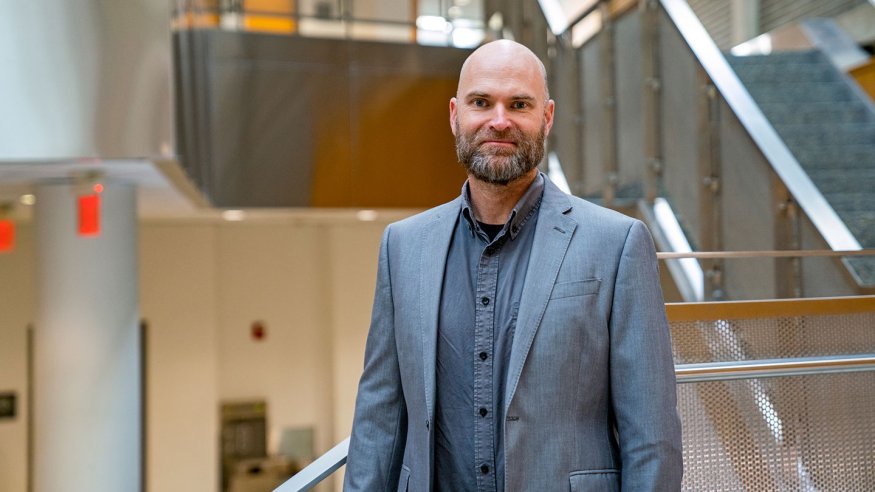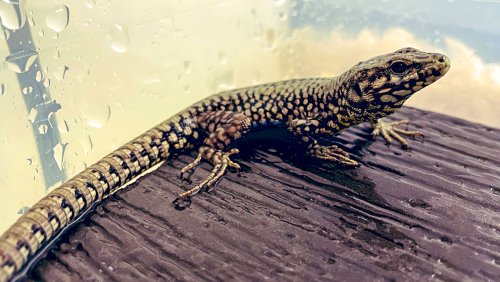It's Inauguration Day!
Congratulations, Matt vandenBerg, OWU's 17th President!
View details for Inauguration Day and stream the event live.
Congratulations, Matt vandenBerg, OWU's 17th President!
View details for Inauguration Day and stream the event live.

August 17, 2022 | By Cole Hatcher

DELAWARE, Ohio – The National Science Foundation is awarding a three-year $476,342 grant to Ohio Wesleyan University professor Eric J. Gangloff to support his ongoing research to better understand how organisms are responding to rapid changes in the world’s climate and ecosystems.
The federal grant supports Gangloff’s research, assisted by OWU students, titled “Success in the Anthropocene: Evolutionary Ecology of the Common Wall Lizard in Ohio.”
In explaining his work, Gangloff, an assistant professor of biological sciences said: “Large changes to our planet’s climate and ecosystems have presented challenges to many organisms, but some species are thriving in their new environments.

“One example is the Common Wall Lizard, a small, active lizard species native to mainland Europe but now established in the United Kingdom, Canada, and the United States,” he said. “My research seeks to identify how this lizard has flourished in urban environments on a new continent after just 10 of the reptiles were released in Cincinnati in the 1950s.”
As part of the project, Gangloff and Ohio Wesleyan students will work in the field and laboratory to document the lizard’s behavioral and physical changes in response to environmental shifts. Their research also will identify genes related to specific traits to help determine how these traits have helped the lizard to survive and thrive.
“This information can then be used to help prevent the spread of potentially harmful invasive species or to understand how organisms we want to protect may respond to changes in their environment,” said Gangloff, a member of OWU’s faculty since 2019. “The infrastructure and systems established here will form the foundation of a long-term, sustainable research program for Ohio Wesleyan undergraduate students that will be a model for other institutions, with a specific focus on increased participation and success in STEM fields for underrepresented minorities.”
The NSF grant will enable Gangloff to hire student research interns during both the school year and summer, travel with them to complete fieldwork, and hire a two-year post-doctoral fellow to assist with the project. While conducting related research, Gangloff and Ohio Wesleyan students already have traveled to Cincinnati and the Pyrenees mountains in France, and presented findings at the annual meeting of the Society for Integrative and Comparative Biology and at the Ohio Natural History Conference.
Learn more about Gangloff and his work, and more about Ohio Wesleyan’s Department of Biological Sciences, at owu.edu/biologicalsciences.
Founded in 1842, Ohio Wesleyan University is one of the nation’s premier liberal arts universities. Located in Delaware, Ohio, the private university offers more than 70 undergraduate majors and competes in 24 NCAA Division III varsity sports. Through its signature program, the OWU Connection, Ohio Wesleyan teaches students to integrate knowledge across disciplines, build a diverse and global perspective, and apply knowledge in real-world settings. Ohio Wesleyan is featured in the book “Colleges That Change Lives” and included on the U.S. News & World Report and Princeton Review “Best Colleges” lists. Connect with OWU expert interview sources atowu.edu/experts or learn more at owu.edu.